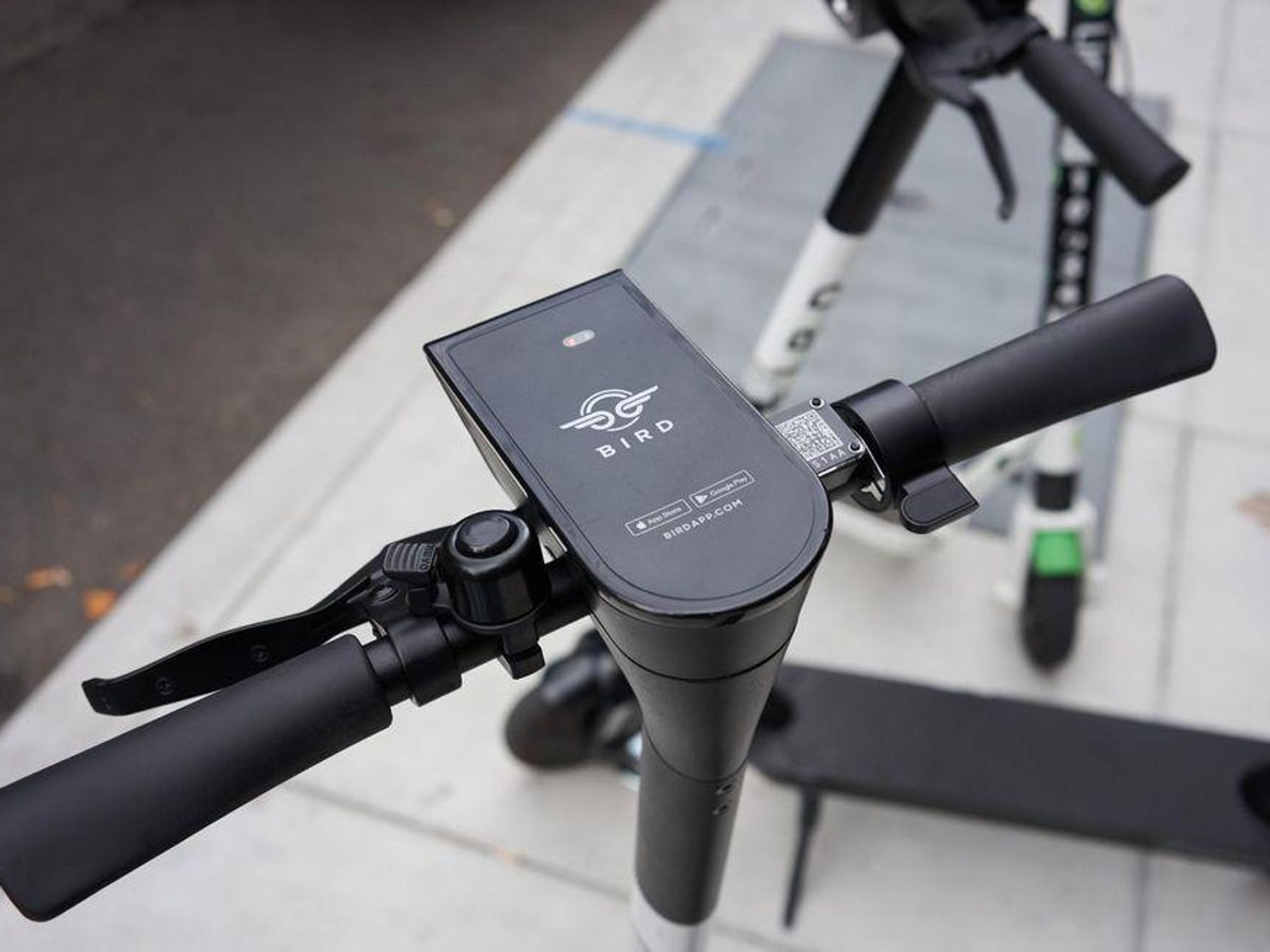Bird Stock Tanks After Company Warns of Dwindling Cash Flow
Samson Amore is a reporter for dot.LA. He holds a degree in journalism from Emerson College. Send tips or pitches to samsonamore@dot.la and find him on Twitter @Samsonamore.

Electric scooter company Bird’s stock took a major blow Tuesday, it was down as much as 20% in the wake of an earnings report that warned the micro-mobility firm could soon run out of cash.
In 2021, Bird went public through a $2.3 billion SPAC deal. Since then, the company’s stock has been battered, erasing nearly all its value and down over 96%.
As of this writing, Bird’s stock is down 17.4% to 3 cents per share. The company could be inching dangerously close to a delisting; the New York Stock Exchange told Bird it was not in compliance since its stock has been trading below $1 since May.
Technically, the deadline for delisting is if a stock has traded below $1 for 30 consecutive days. The NYSE, however, gave Bird a 6-month grace period beginning in June to get back in compliance – so that means that Bird has until December to rectify its trading price, at least.
Bird didn’t return a request for comment regarding delisting.
Earlier this week the scooter retailer revealed that its previous revenue reports to the Securities and Exchange Commission couldn’t be relied upon because it overstated revenue – an audit found that two years worth of earnings reports (from first quarter 2020 through second quarter 2022) were unreliable because Bird was recording revenue from trips even when customers didn’t have a “preloaded wallet balance” to pay for them. In other words, Bird was giving away rides for free.
Bird reported third quarter earnings Nov. 14. The company said its revenue rose 19% annually to $61.1 million. Net loss was $9.8 million, which was cut significantly from the $42.1 million losses Bird reported this time last year.
But even if it is slimming down losses, Bird’s profitability remains a long shot. Bird only has $38.5 million in cash on hand, and the company warned it might not have enough capital to continue operations.
Bird offered a warning in its earnings report, too. It provided investors with a “going concern” notice that warned if Bird is unable to raise additional money or generate positive cash flow, it “may not be able to compete successfully and may need to scale back or discontinue certain or all of its operations in order to reduce costs or seek bankruptcy protection."
Shane Torchiana, Bird’s new chief executive officer, said in a statement Monday, the company will try to reduce its expenses by up to $40 million annually and wants to become profitable by 2023.
In June, Bird laid off 23% of staff and its earnings report suggested more layoffs could follow.
The company’s already taken steps to scale back its operations in some areas – in an Oct. 18 regulatory filing, Bird noted it would exit Germany, Sweden and Norway. It also said it planned to “wind down operations in several dozen additional, primarily small to mid-sized markets across the U.S. and [Europe, the Middle East and Africa], as part of its previously announced plan to focus the business on an accelerated path to profitability.” But didn’t clarify which locations in the U.S. would be affected. Bird’s website currently says it is active in “over 450 communities,” but the list appears to still include the countries it said it would leave.
Bird blamed its lack of profit on the cities it chose to operate in, claiming they simply weren’t ready for its e-scooter revolution.
“The lack of robust regulatory framework in select cities and countries creates an operating environment that is unsustainable for micromobility operators,” Torchiana stated Monday. “As a result we made the decision in the quarter to reduce our footprint across a number of unprofitable cities… so we can focus the business on a path to achieve profitability and self-sustainability.”
- How Bird Could Benefit From a Post-COVID World ›
- Hometown Rift? Bird Says It’s ‘Disappointed’ To Be Kicked Out of Santa Monica but Hints at Appeal ›
- 'It Felt Like a Black Mirror Episode' The Inside Account of How Bird Laid off 406 People in Two Minutes via a Zoom Webinar ›
- Bird Overstated Revenue for 2.5 Years. Now What? - dot.LA ›
Samson Amore is a reporter for dot.LA. He holds a degree in journalism from Emerson College. Send tips or pitches to samsonamore@dot.la and find him on Twitter @Samsonamore.





 Image Source: Skyryse
Image Source: Skyryse